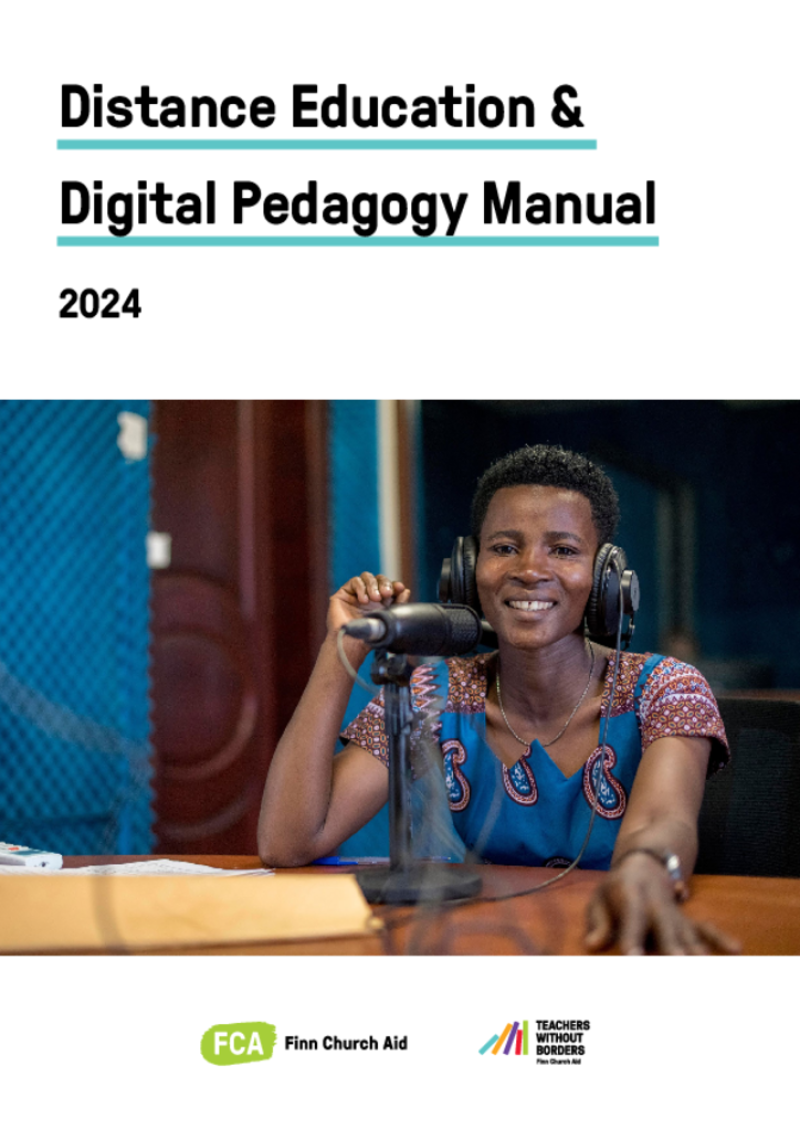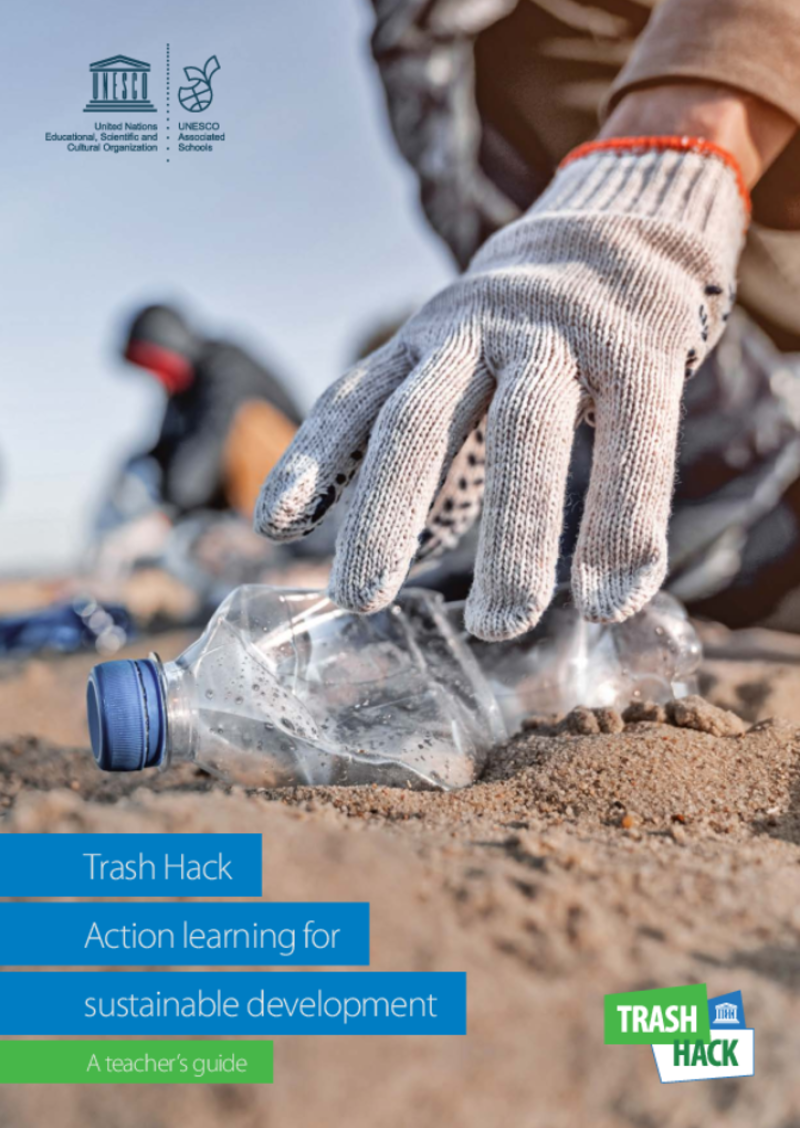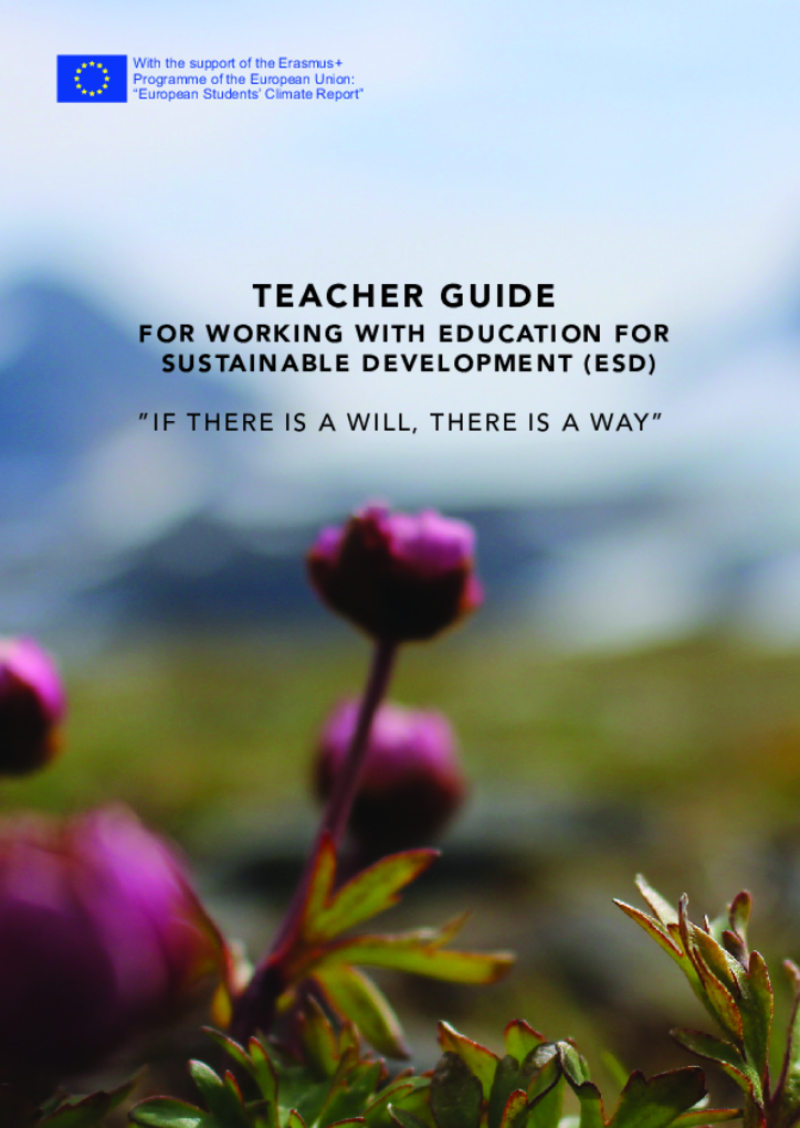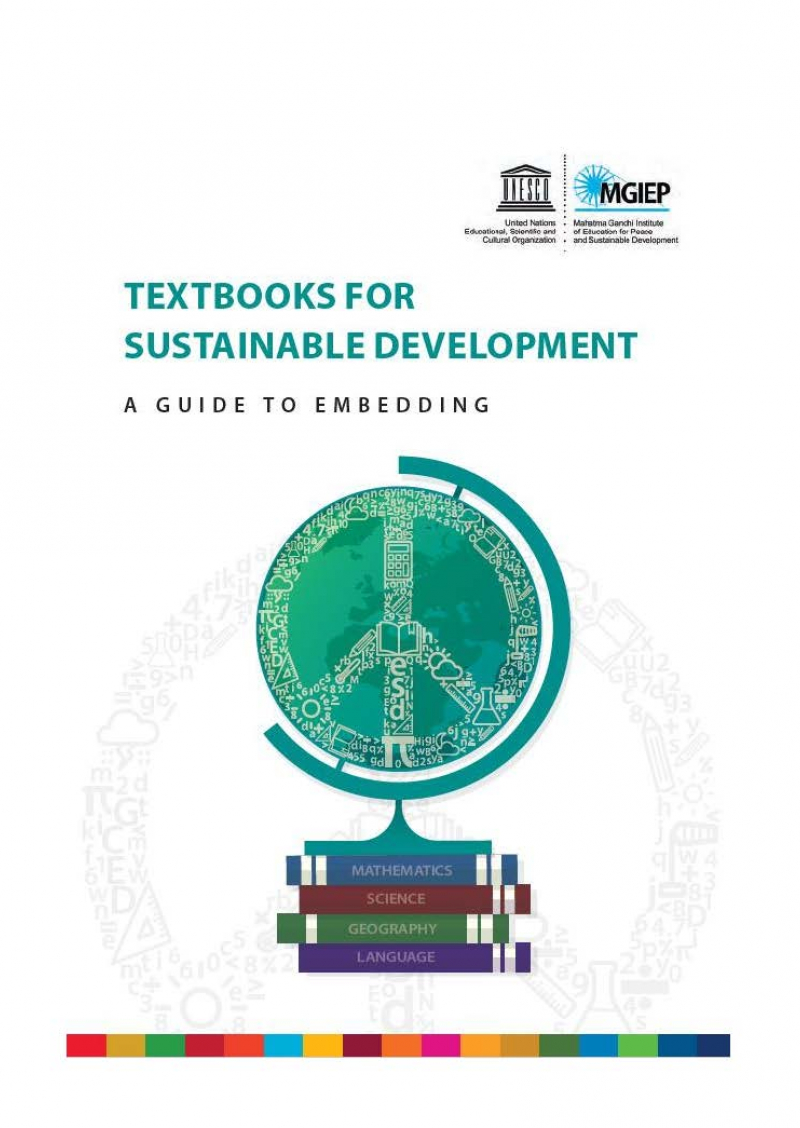Centro de Recursos para Docentes
Visualizar 1 - 6 de 6
FCA & TWB Distance Education & Digital Pedagogy Manual
This teacher training manual on Distance Education & Digital Pedagogy supports teachers and other education personnel’s continuous professional development in pedagogically high-quality distance education and remote learning especially in diverse, low resource contexts and is adaptable for use anywhere in the world.
The manual has been developed by Finn Church Aid (FCA) and Teachers Without Borders (TWB) Finland. The development of the training materials began already in 2020 as a response to the school lock-down situations caused by the COVID-19 pandemic, when teachers and learners quickly had to adapt to remote education modalities. Even though the pandemic has subsided, the need for quality distance education prevails. Ensuring the continuity of learning for all learners is critical in all contexts, even and especially during crisis situations.
The training manual consists of eight (8) training modules that can be used flexibly:
- Distance Education,
- Distance Education Modalities,
- Pedagogy of Digital and Distance Education,
- Psychosocial and Emotional Wellbeing,
- Learner-Centred Methods in Distance Education,
- Home Support – Parents and Caregivers’ Role and Collaboration,
- Inclusive Education, and
- Assessment and Evaluation.
The content design allows the trainer or facilitator to pick individual modules or sessions and adapt the training content according to the context and target group’s needs.
We hope you find it useful!
Trash hack action learning for sustainable development: a teacher's guide
This short guide provides teachers with action-based approaches to address waste and trash management for sustainable development. It contains infographics and factsheets, inspiring initiatives taken by youth all around the world and activities that can be implemented in class or outside, over one day or several class sessions.
Teacher Guide for Working with Education for Sustainable Development (ESD)
The purpose of this teacher guide is to inspire teachers who want to work with climate change and sustainable development with their students. In this guide, you will find examples of teaching activities and teacher reflections on these activities. The activities described should be seen as inspiration. They could be adjusted according to a specific teaching context as preferred, thus aligned with the same objectives and perceived outcomes. The EU-project in which the activities were developed, was carried out with upper secondary students (aged 16-19). With smaller changes by the teachers, younger students can also work with the suggested activities. Beyond the goal of learning about climate change and sustainable development, the activities enable students to practice their critical thinking, and develop their communication and presentation skills.
ETF READY model
The European Training Foundation's READY model (Reference model for Educators' Activities and Development in the 21st century) offers a structured way to identify the professional practices and development needs of the 21st century educators.
Reset earth teaching toolkits
This toolkit provides teachers with ideas, activities, games and discussions to engage students on the issues of the ozone layer. It includes comprehensive lesson plans for the age ranges of 7-12 and 13-18 and a simulation-style game, all accessible through the education portal of the Apollo's Edition of the Reset Earth campaign.
Textbooks for sustainable development: a guide to embedding
This guidebook aims to support textbook authors and publishing houses to produce a new generation of textbooks that integrate education for sustainable development. By doing so, it aspires to make learning relevant and effective. It also contributes to the implementation of the 2030 Agenda for Sustainable Development. Textbook authors and educators are encouraged to use this guidebook as a source of ideas, tools and methods that can help to enrich content and pedagogy and complement their own individual and institutional strategies. The guidebook offers concrete guidance for textbook authors on how to reorient the existing curriculum content towards peace, sustainable development and global citizenship.





